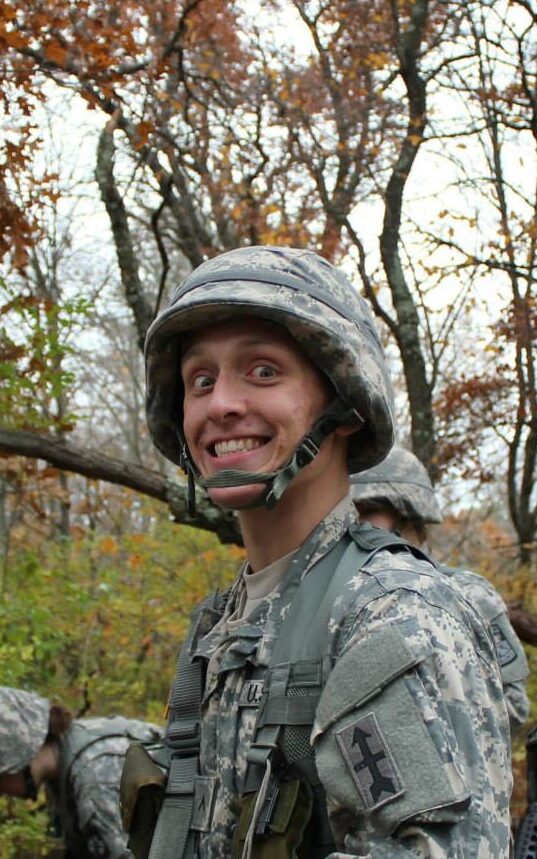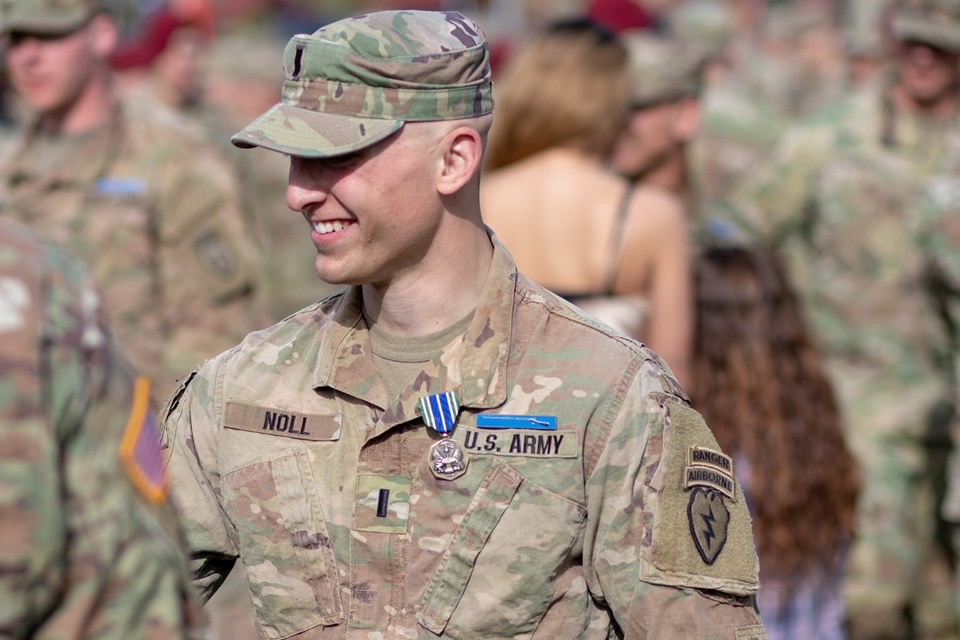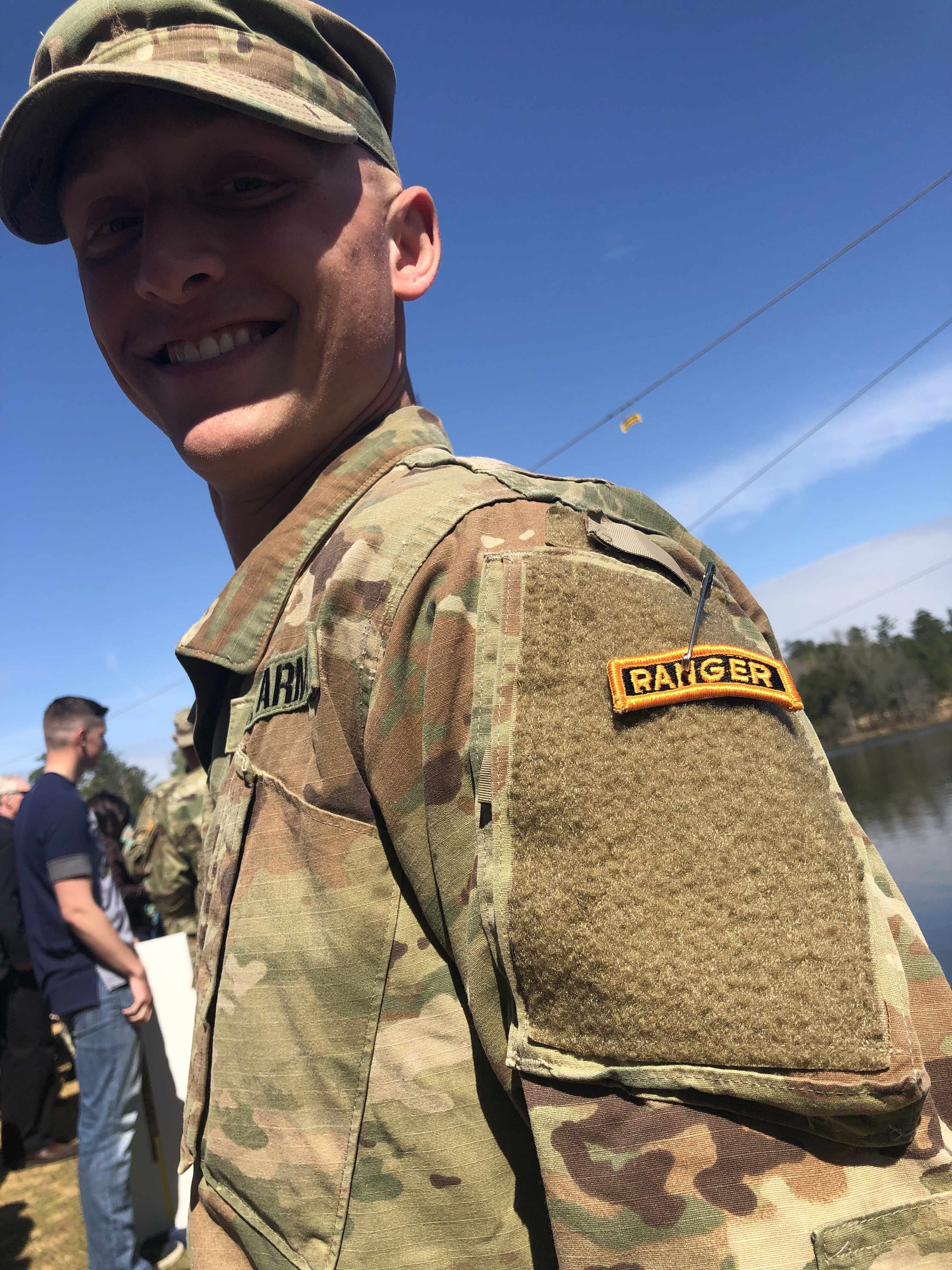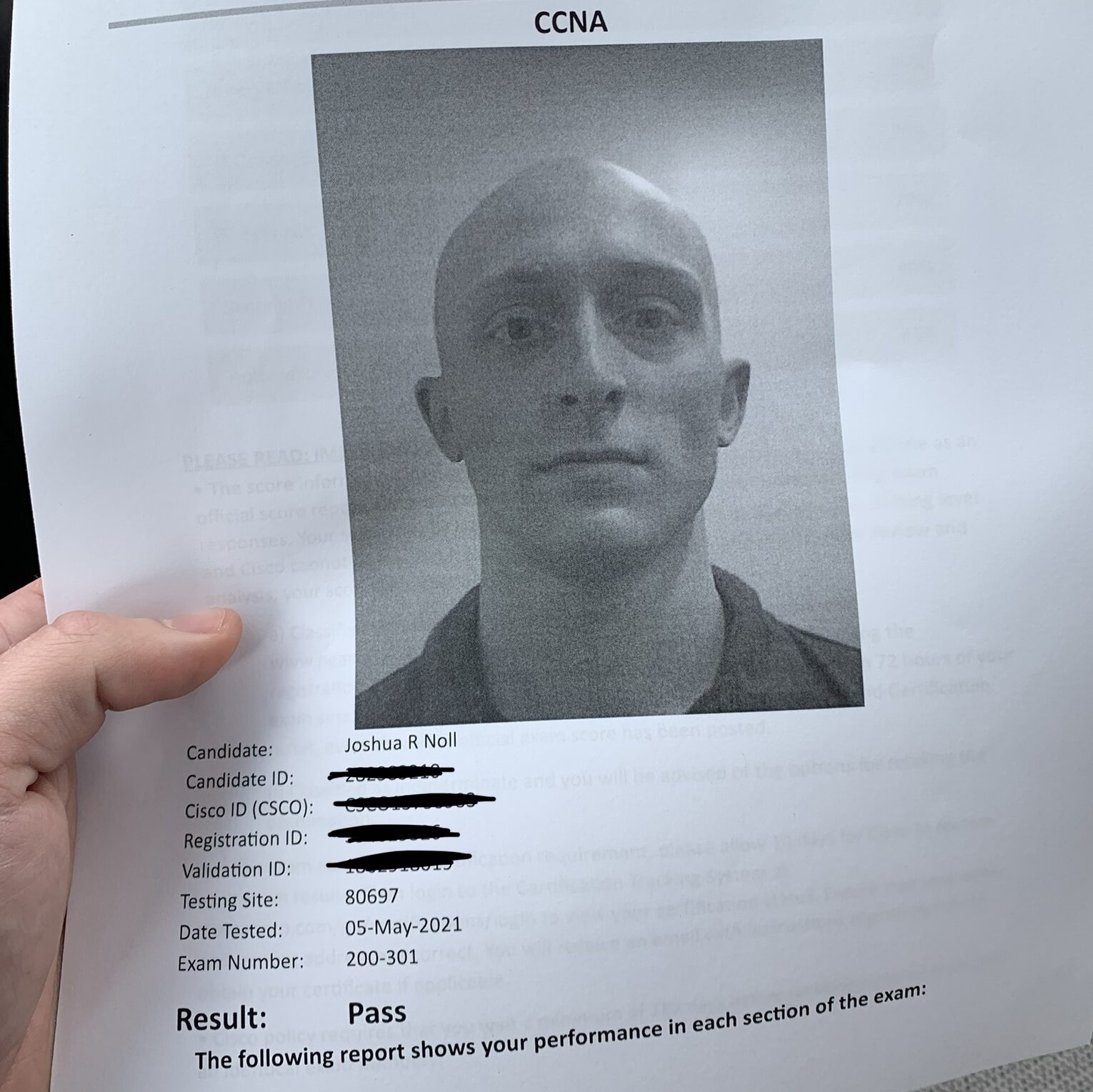Before I Was a Nerd
I was born in the frigid winter of central Wisconsin (go Packers!) and I grew up wanting to do one thing with my life: join the Army, and do ‘cool guy’ stuff. I was determined to become one of the guys who jumped out of planes and blew stuff up. You know, the guys in the movies and TV shows, with the face paint and guns. The ones who rappel out of a helicopter, onto the roof of a building, scoop up a bad guy, and save the day with no fewer than 3 large explosions happening in the background.

So, I went off to college and joined the Army ROTC program at the University of Wisconsin – Eau Claire. Now, the way ROTC works is that you are assessed based on your grades, physical fitness, and overall performance in the program. Only the most competitive cadets will commission into the Active Duty Army (the rest go to the National Guard or Army Reserves). Furthermore, your performance determines the branch, or job, you get when you commission. Well, 18 year-old me knew only one thing: that he wanted to do all that ‘cool guy’ stuff. That meant commissioning Active Duty and being branched into the Infantry.
Here’s what they don’t tell you when you go to college though; you have to pick a major. Okay, they tell you that, but 18 year-old me didn’t give it any thought. The only thing in my sights was ROTC and the Army. And who knows what they want to do with their life at 18 anyway? Well, I sure did (or so I thought) and my major had nothing to do with it. The only role my major played in my future was ensuring I could get good grades so that I would be assessed for Active Duty Infantry.
I ended up majoring in German. I was already taking it for retroactive credits from my high-school courses, and I was good at it. I got great grades and ended up getting into the Infantry, with a caveat. I was branched Signal (the Army’s communications branch) with a branch detail to Infantry. This meant that I would do my first few years as a Lieutenant in the Infantry, and then switch over to Signal once I made the rank of Captain.
See, by my junior year I had been through some Army training already, and I realized that 20 years would be a long time to be doing this ‘cool guy’ stuff. I figured that at some point down the line, my definition of ‘cool guy’ stuff would change. So, the branch detail program seemed like a good fit: do a few years in the Infantry, and then switch to something a little more gentle. In my case, the Signal Corps — The US Army’s Communicators.
My Transition to IT

Fast forward to 2020. I barely speak German anymore, and I’m still in the Infantry trying to wrap my brain around what my professional future looked like. Requesting to stay in the Infantry was an option since I had done well at my ‘cool guy’ stuff up until this point. I had done some of the hardest things in my life. I graduated Ranger school. I jumped out of planes, I earned an Expert Infantryman’s Badge. I learned a lot about myself and what I was capable of.
However, my heart wasn’t even set on being in the Army for 20 years, let alone being in the Infantry for that long. But, at this point in my life, I had absolutely no IT experience. I didn’t even consider myself much of a ‘computer person’. This made me apprehensive about my inevitable switch over to the Signal Corps.

I wanted more specialized training to help wash away that creeping feeling of impostor syndrome. So, I started throwing darts at the dartboard to see what would stick. I flipped through the broadening catalog looking for technically oriented opportunities and, by October 2020, I had thrown a dart that seemed to stick. I applied to a broadening opportunity called the Artificial Intelligence Scholar Program from Army Futures Command. This program involved taking off the uniform for a couple of years to earn a Masters in Computational Data Science from Carnegie Mellon University.
Now, keep in mind I had zero background in IT and zero background in anything computer related, let alone anything remotely related to the field of data science. I didn’t have a STEM degree and math was perpetually my weakest subject throughout my years in school. But, to my surprise, I was accepted. I suddenly had a way ahead: go to the Signal Captain’s Career Course, go to Carnegie Mellon for two years, serve with Army Futures Command for two years doing what quickly became my new definition of ‘cool guy’ stuff — nerd stuff.
In January of 2021, however (just a few weeks into the Career Course) I got an email. “We messed up, you shouldn’t have been accepted in the first place, and you’re not going to Carnegie Mellon.” Not only was this a royal gut punch personally, but professionally this had many implications. Because of my involvement in the broadening program, I had missed the opportunity to compete for a regular position in the Army as a Signal Officer and was therefore left with the very few, undesirable positions that remained in the market. Additionally, I had missed out on the opportunity to apply for any other broadening opportunities, as the application to the AI Scholar Program was contingent upon not having any other open applications.
After discussing options with my branch manager, I had taken interest in what the Army calls ‘Functional Area Officers’. These officers are the technicians. They are the super nerds. They roll up their sleeves and get theirs hands dirty on a keyboard in ways that regular Signal Officers don’t really get to do. This was exactly the kind of specialized training that I was looking for to rid me of my impostor syndrome (fun fact: that feeling never really goes away). My branch manager pulled some strings, and a week after that phone call I was sitting in the first block of instruction in the Army’s Information Systems Engineer Course.
CCNA – Where it All Began
That block of instruction was CCNA. This was one of the most mentally challenging things I have ever done and quickly overwrote Ranger school as one of my proudest accomplishments. The course began in early March of 2021. I didn’t know what an IP address was and I thought a ‘switch’ was a game system made by Nintendo. Studying became a full-time job. I was taking the course alongside others who had been Signal Officers for years prior or had years of IT experience in some way, shape or form. Even they were struggling. But I was the first in the course to sit for the certification exam. Others put it off because they didn’t feel ready. In May of 2021, just two months after I asked “What’s an IP address..?” I had my CCNA.

I learned a few things through this process beyond how to segment a network with VLANs or configure static and dynamic routing. I learned that I can learn anything. And not only can I do it, but I actually love doing it. I fell in love with IT. I fell in love with learning all things technology. By the end of the Systems Engineer Course I had earned every certification that was offered to us.
Of course, racking up certs isn’t everything. Ultimately, having a cert just meant that I could study well and pass a test. It didn’t necessarily mean I could do anything with that knowledge yet. So, I started tinkering. I got into homelabbing which quickly became one of my biggest hobbies. It serves as both professional development, and fun at the same time. I think that’s the definition of a passion right?
Why a Blog?
A couple of reasons…
To Learn Out Loud
I believe that I’m living proof that just about everything you have ever wanted to know is either in a book, or somewhere on the internet. And a lot of it is free.
The reason this blog exists is because I decided I wanted to start learning out loud. Rather than just consuming all of this free information for my own good, I want to contribute to it so that others can gain value from my learning as well.
This idea is based in the principles from the Learn in Public movement coined by Shawn Wang (aka swyx), as well as the books Steal Like an Artist! and Show Your Work! by Austin Kleon.
Other, Selfish Reasons
I also needed a knowledge-base for my own records. The amount of times I’ve figured something out in my homelab, figured something out at work, or learned some new and obscure task, only to completely forget how it was done shortly thereafter, is a number greater than zero. This often creates a vicious cycle; forcing me to go through the process of learning it all over again when I re-encounter the issue sometime later. The concept of learning out loud will also be a way for me to revisit something I’ve learned; allowing my posts to serve as documentation for my future self.
Not to mention, writing about what I’ve learned is also a way to enhance the process of learning in the first place. If you can’t articulate it to someone else, did you really learn it?
“If you can’t do it, teach it.”